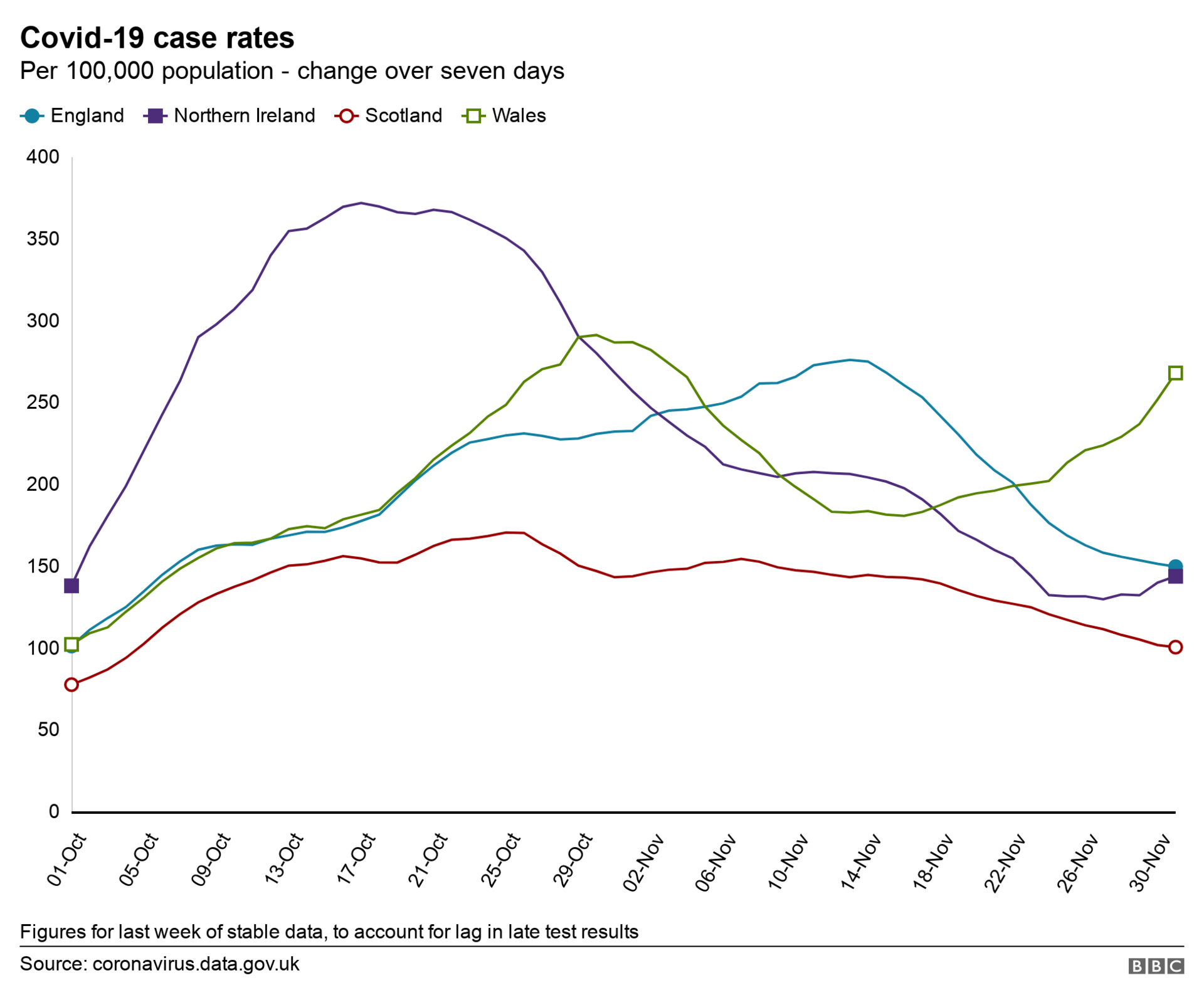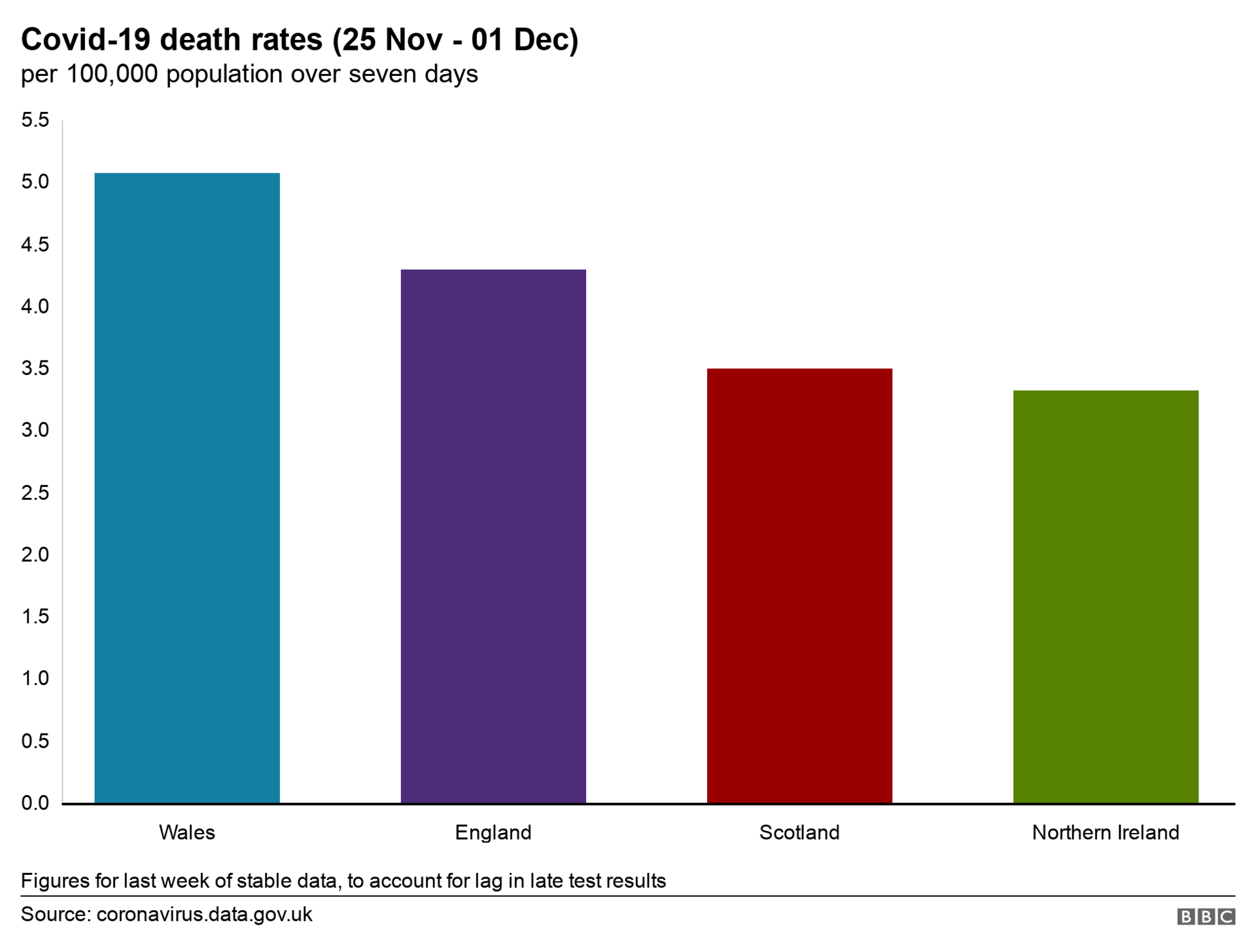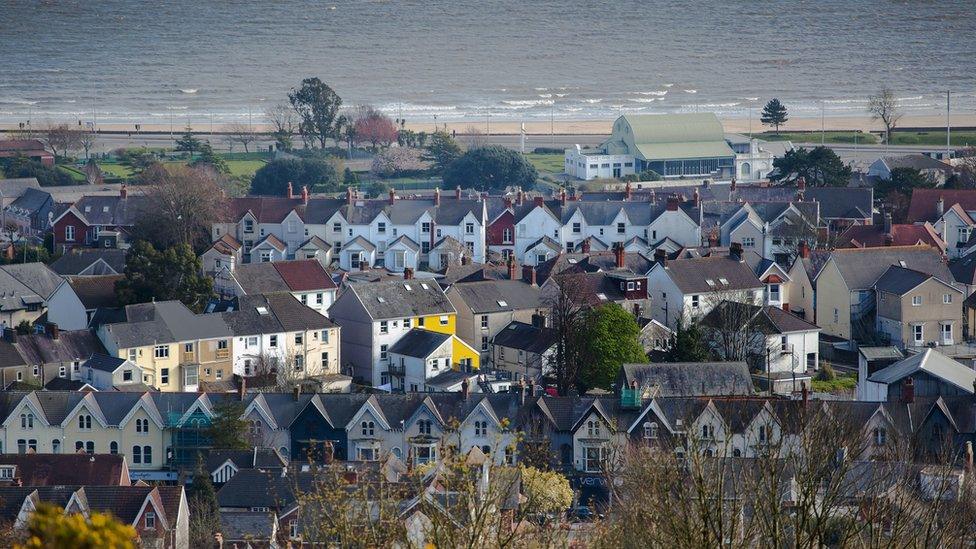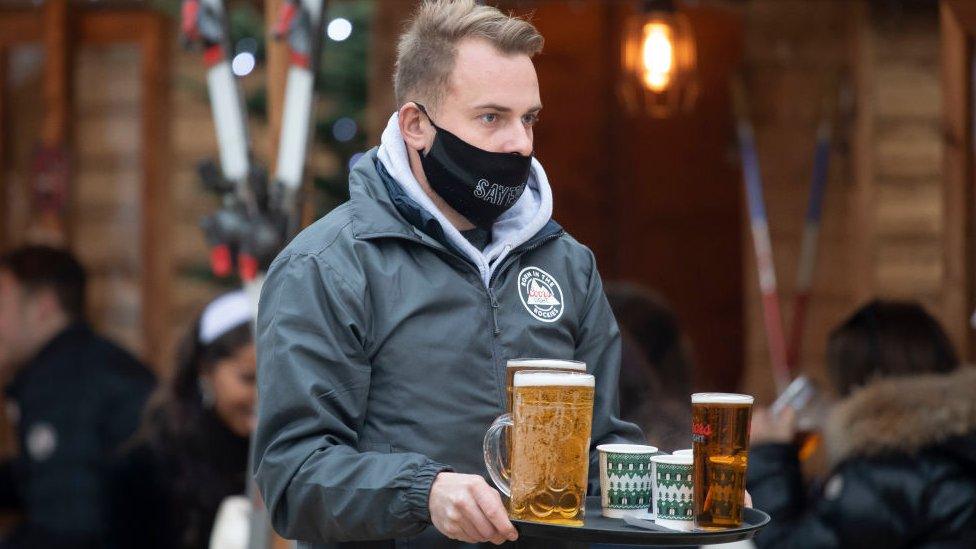Covid: Wales only part of UK without falling coronavirus rates
- Published
- comments
NHS in Wales is under "considerable and sustained pressure", says health minister
Wales' health minister has warned there could be further restrictions after Christmas as Covid cases continue to rise.
Vaughan Gething said Wales was the only part of the UK where figures were not falling at the end of November.
Mr Gething confirmed ministers were looking at whether further measures would be needed.
At a press conference he said choices made by the public would determine how many die from the virus.
It comes as officials in Swansea Bay warned case levels could soon reach "catastrophic levels" unless people follow social distancing rules.
Meanwhile the Welsh Conservatives called for "detailed plans" for how the Welsh Government would deal with the rising cases.
Plaid Cymru's Adam Price said the Welsh Government was struggling to communicate to the public.


According to UK government statistics, Wales' coronavirus case rate overtook England's on 23 November, two weeks after the firebreak ended and while England was locked down, and on 1 December had a seven-day case rate of 267.8 per 100,000 people.
That compared to 149.5 in England, 143.6 in Northern Ireland, and 100.3 in Scotland.
The number of deaths per 100,000 people in the seven days to 1 December was 5.07, compared to 4.3 in England, 3.5 in Scotland and 3.3 in Northern Ireland.
New measures stopping the sale of alcohol in pubs, and closing them - along with cafes, bars and restaurants - at 18:00 GMT, came into force last Friday.
But Mr Gething said it would "take a couple of weeks" for them to have any impact on the rate of confirmed cases.


The health minister said the Covid situation is Wales was "very serious" with the NHS under "considerable and sustained pressure".
"We're actively considering each day whether the measures we have are the right ones in place or not.
"We're committed to review the regulations in the next week and a half or so and we will then have to consider what we do… we're actively considering what we are going to need to do, what we may need to do after the Christmas period."
Restrictions are set to be relaxed at Christmas, so three households can form a bubble.
Behaviour 'will influence how many die'
The latest data showed the all-Wales case rate was almost 70 points higher than it was on Friday, he told journalists.
There were eight local authorities with rates higher than 400 cases per 100,000 people - four times as many areas as on Friday.
Mr Gething said choices made by the public would influence how many people died of Covid over the Christmas period.
He decisions about social contact made by each individual would "determine how many of us are here in the New Year and beyond".

At Monday's press briefing, Mr Gething cited the most recent infection survey from the ONS which said one in 170 people in Wales were likely to have the virus at the end of November.
That compared to one in 190 in Northern Ireland, one in 130 in Scotland and one in 105 in England.
But he said it showed Wales, with an estimated 18,100 people with Covid-19, "was the only part of the UK where infection rates did not appear to be falling in the last week of November".
However he said that reflected "tighter measures elsewhere".

Mr Gething said there were now more than 1,800 coronavirus-related patients in hospitals in Wales - "the highest number ever recorded".
"If we do not see a reduction in coronavirus admissions, we will need to consider what action we can take and may need to take to support the NHS as we move into the New Year," he said.
The figures, from last Thursday, include more than 550 patients still recovering from the effects of the virus, although they have not shown symptoms for more than two weeks.
Patients in the Aneurin Bevan and Cwm Taf Morgannwg health board areas count for more than half of those being treated for Covid-19 in hospital.
Covid-19 patients make up around 23% of all patients in hospital, compared to about 18% at the end of May.
The press conference followed last week's controversy over the alcohol ban in pubs.
What has the reaction been?
Plaid Cymru leader Adam Price said the Welsh Government has struggled to communicate with the public.
"I'm not sure that they're taking the public with them, and there's no clear roadmap, if you like, which takes us from now to where we're going to be in the spring".
He said there should have been "a compromise" with less strict hospitality rules.
Meanwhile Mr Gething confirmed that the first Covid vaccine will not be delivered to care homes when the rollout begins on Tuesday.
Last week the Welsh Government was unable to say when the vaccine roll out would start with care homes, because of difficulties with how it is stored.
Mr Gething said conversations had taken place with Pfizer and the regulator "to understand how we can safely and lawfully deliver this vaccine to care homes".
But he stressed "that won't be tomorrow".
The Welsh Conservatives said the news was a "bitter blow" and the decision needed a "fuller explanation".
Welsh Conservative Andrew RT Davies, health spokesman, added: "We've seen that the figures outlined today suggest higher cases of Covid in Wales.
"We, not just Welsh Conservatives but I'm sure all people in Wales, want to see detailed plans of how the administration here will address this.
"However, we have been calling for the publication of a detailed Winter plan for how the virus will be managed for months, and we're still waiting."

Record numbers of Covid-related inpatients in Welsh hospitals inevitably pose questions about recent policy decisions by ministers.
Was the firebreak lockdown too short? Was the regime that succeeded it too liberal?
On Friday, new (and highly controversial) restrictions on hospitality were imposed. It will be a few weeks before we see any data on their effect.
What's interesting is that those measures still allow the most generous household mixing in hospitality venues than any equivalent measures elsewhere in Britain.
With the Christmas relaxation looming, it's hard to escape the feeling that stricter restrictions are just around the corner.
Related topics
- Published28 May 2024

- Published7 December 2020

- Published4 December 2020
